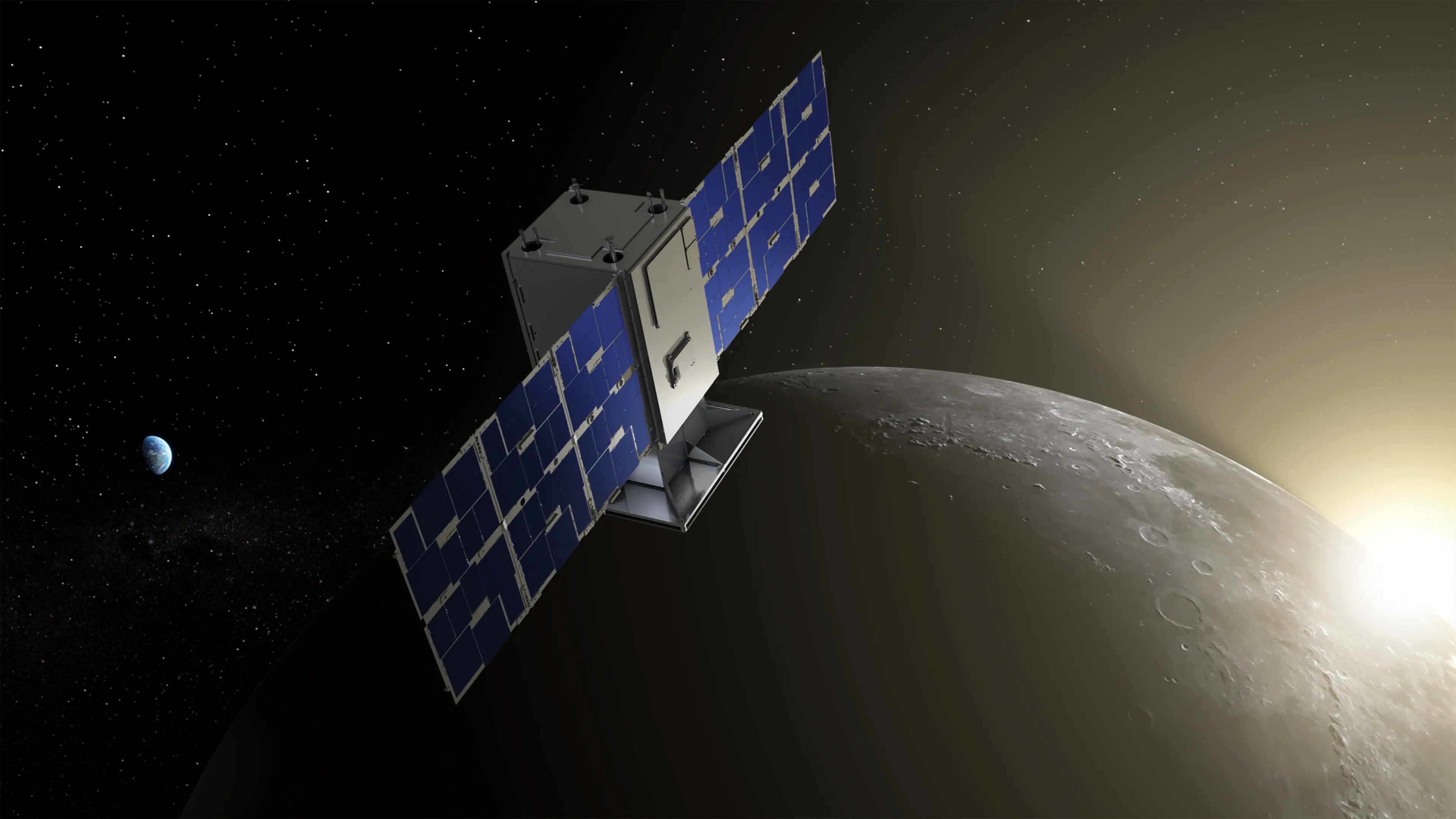
NASA's CAPSTONE mini-spacecraft recently marked its 100th trip around the moon in near-rectilinear halo orbit (NRHO). The agency has just granted CAPSTONE a mission extension after operating in its NRHO for 670-plus Earth days.
CAPSTONE is now funded until December 2025.
CAPSTONE — short for Cislunar Autonomous Positioning System Technology Operations and Navigation Experiment — is a microwave oven-sized cubesat that weighs a modest 55 pounds (25 kilograms).
Software smarts
Launched in June 2022 aboard a Rocket Lab Electron booster from New Zealand, CAPSTONE is owned and operated by Advanced Space, a company based in Westminster, Colorado.
Related: NASA's tiny CAPSTONE probe snaps 1st photo of the moon, begins extended mission
The new mission extension allows further demonstration of Cislunar Autonomous Positioning System (CAPS) experiments, as well as showcasing first-of-its-kind artificial intelligence/machine learning software to detect anomalies and navigation data, and to learn how to perform autonomous maneuvers.
NRHO is the locale of NASA’s future moon-orbiting Gateway space station. That outpost will aid long-term human exploration of the moon, allowing crews to access the lunar south pole — an early priority zone for the space agency’s Artemis program.
Cross-link
Bradley Cheetham, Advanced Space’s president and CEO, said in a statement: "In five years, CAPSTONE has gone from a bright idea by a small business to a mission that continues well past its expected end date."
Extending CAPSTONE’s mission also allows further collaboration with the Lunar Reconnaissance Orbiter (LRO) team at NASA's Goddard Space Flight Center in Maryland. That partnership comes via a recently extended Space Act Agreement to evaluate, and when appropriate, conduct opportunities for cross-link data collection between the two spacecraft.
Advanced Space will work with spacecraft operations partners at Tyvak Nano-Satellite Systems (a Terran Orbital Corporation).
Advanced Space is the owner and operator of CAPSTONE for NASA and prime contractor for the Air Force Research Laboratory’s Oracle project, which is designed to develop cislunar space situational awareness capabilities.
You can learn more about the CAPSTONE mission at Advanced Space's website.







